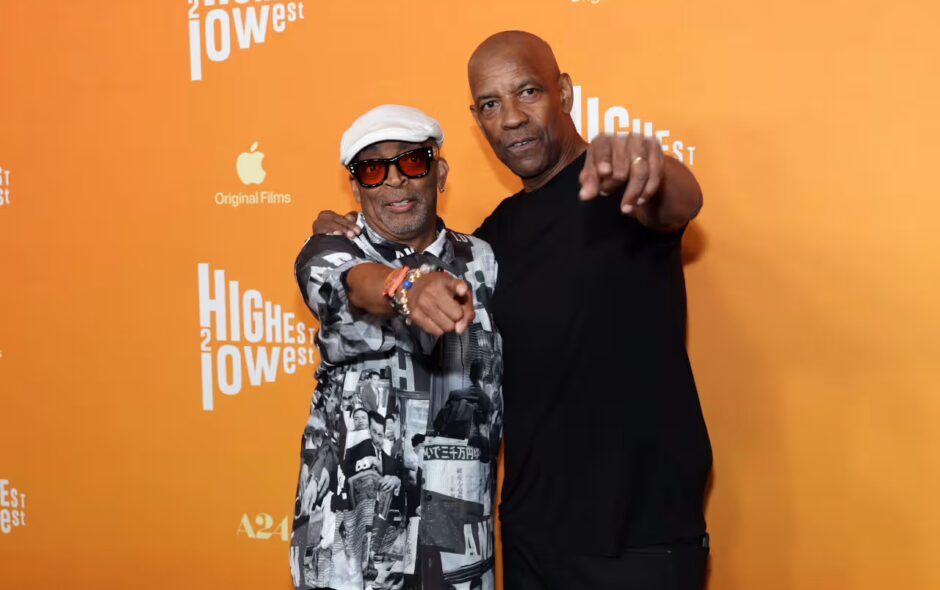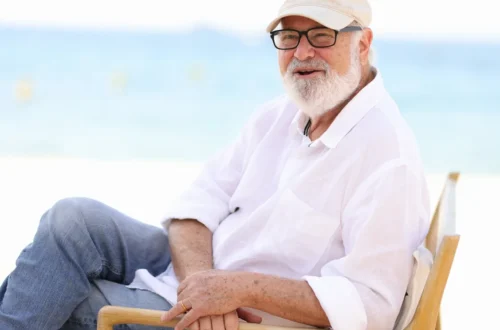Spike Lee’s ambitious docuseries on Colin Kaepernick has been shelved after months of anticipation, marking a dramatic halt for a project once touted as a landmark in sports and activism storytelling. ESPN, which originally partnered with Kaepernick and Lee to bring the series to life, confirmed the collaboration has ended due to creative differences.
The multi-part series, titled Da Saga of Colin Kaepernick, was announced in 2022 and planned as an in-depth, first-person chronicle of the quarterback’s life, activism, and enduring impact on American culture. Kaepernick’s own archive of interviews, footage, and personal material was to form the foundation of the narrative, with Lee’s directing vision shaping the story. Early expectations were high: Lee’s reputation as one of America’s most incisive filmmakers promised a raw and revealing portrait, while Kaepernick’s complex journey offered fertile ground for discussion.
But the project quickly ran into disagreements over its scope and tone. Kaepernick reportedly wanted the series to focus more narrowly on his personal journey—his rise in the NFL, his protest against racial injustice, and the consequences of kneeling during the national anthem. Lee, by contrast, sought to frame Kaepernick’s experience as part of a broader commentary on Black athletes, activism, and systemic oppression in sports and society. Those differences proved irreconcilable, and the project was quietly suspended.
Lee confirmed the end of the series in brief comments at a fundraising event, saying simply, “It’s not coming out. That’s all I can say.” Bound by a nondisclosure agreement, he offered no further details. ESPN later described the split as the result of creative differences and noted that while there were discussions about moving the series to another distributor, no arrangement could be reached.
The cancellation raises questions about the intersection of activism and corporate media. The timing coincides with shifts at ESPN, including new financial ties to the NFL, which may have made a project centered on one of the league’s most outspoken critics more complicated. Kaepernick has not played professional football since 2016, when his decision to kneel during the anthem ignited a national debate about race, patriotism, and protest. His subsequent collusion lawsuit against the NFL, which settled in 2019, cemented his role as both a symbol of resistance and a divisive public figure.
The series would have marked the most extensive telling of Kaepernick’s story in his own words, framed by one of America’s most politically engaged filmmakers. Beyond football, it aimed to explore his activism, the backlash he endured, and his broader influence on movements for social justice. For supporters, it promised a chance to hear directly from Kaepernick, unfiltered and at length, in a cultural climate still grappling with the issues he helped spotlight.
For Spike Lee, the project’s demise is a rare setback amid a period of creative resurgence. Fresh off strong reviews for his latest feature film, he had described the docuseries as a passion project that would give voice to an athlete whose protest reshaped the national conversation. Its shelving underscores the risks inherent when activism, art, and corporate partnerships collide.
The decision leaves open the possibility that Da Saga of Colin Kaepernick could someday find a new home. The completed footage and Kaepernick’s archival material remain, and both Lee and Kaepernick are free to pursue the project elsewhere. But as of now, what might have been a definitive cultural document is unfinished and unseen.
For viewers eager to see Kaepernick’s story told in full, the news is disappointing. For Lee, it is a reminder of how fragile even high-profile projects can be. And for ESPN, the cancellation reflects the delicate balance of telling stories that intersect with the political and cultural flashpoints of the moment.
What remains is a void. Da Saga of Colin Kaepernick promised not just a biography, but a meditation on the collision of sports, race, and protest. Instead, it will be remembered—for now at least—as the untold story of a man who changed the game, and a filmmaker who wanted to capture it, only to see the project unravel before the world could watch.
Do you want me to also draft a sidebar profile on Colin Kaepernick himself—his career arc, activism, and cultural role—that could sit alongside this main story?




